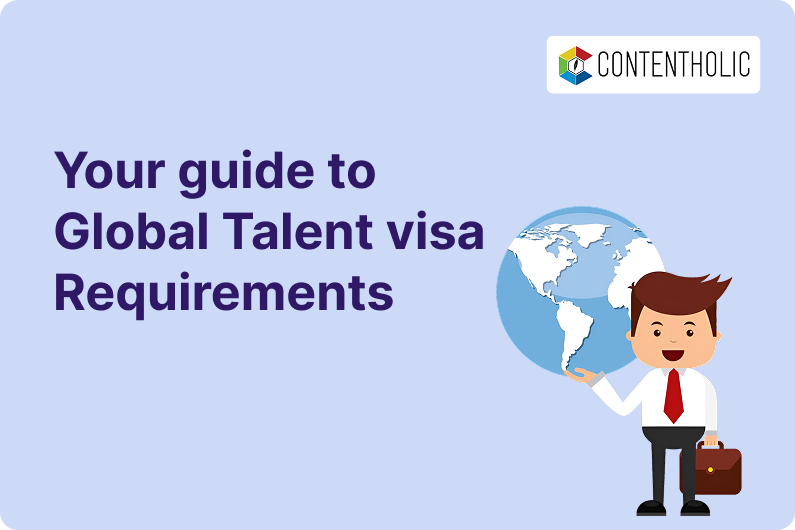Australia is one of the most prevalent study-abroad destinations worldwide for those wanting a high-quality education with the most relevant and industry-ready curriculum. Australia is known to have some of the best universities in the world, a welcoming environment, and breathtaking landscapes. However, getting into one of Australia’s universities requires you to go through a long admissions process, which might be daunting to anyone. Worry not, this blog will act as a guide for you on how you can study Bachelor’s in Australia with the right choices and guidance.
Factors Behind Choosing Australia as a Study Destination
1. World-class Education
Australia boasts some of the top universities in the world. Universities like the University of Sydney, University of Melbourne, Australian National University (ANU), University of Queensland, and many more are globally recognized for their teaching methods and research opportunities. Australian universities offer a wide variety of programs for students who have completed their 12th standard, and their degrees are recognized internationally. With high academic standards, these universities are known to prepare students for global careers.
2. Diverse Range of Courses
Australia provides students with an extensive choice of courses in nearly every field. Whether your area of interest lies in engineering, medicine, arts, business, technology, or social science, Australian institutes have top-notch programs for every field of study. Additionally, many universities offer flexible learning options, such as part-time courses, online courses, and internships as well. This flexibility ensures that you can tailor your education according to your career goals.
3. Affordable Education and Scholarships
Compared to other countries like the United States or the United Kingdom, Australian universities have affordable tuition fees. Universities have a range of scholarships and financial aid options that can ease the financial burden of students.
4. Multicultural Society
Australia is known for its welcoming and multicultural environment. From a large number of students from various countries, you will feel right at home no matter where you are from. The diverse culture also allows students to expand their worldview, make connections with people from different backgrounds, and have long-lasting friendships.
5. Work Opportunities
Australia allows international students to work part-time during their studies, offering great opportunities to gain work experience and support their living costs. After graduation, international students can apply for post-study work visas, allowing them to work for up to 4 years in Australia depending upon their qualifications. This makes it an ideal destination for those looking to gain international work experience.
Types of Degrees You Can Get After 12th in Australia
- Associate Degree Programs: These are different from the typical 3-year undergraduate programs and can be completed in 2 years. They generally include industry-ready programs and are designed for those who do not have time to give 3 years to undergraduate studies.
- Bachelor’s Degree Programs: These are 3-year undergraduate programs to give students the foundation in the subject of their choice.
- Bachelor’s Degree (Honors) Programs: These programs are completed within 4 years and are for those who want to specialize in a subject.
The most popular Bachelor’s programs in Australia among international students are in Management, Commerce, Engineering, Technology, Natural Science, Physical Science, Health, and Information Technology.
- Vocational Education and Training (VET) Courses: These are courses for those who want to learn specific skills and gain professional knowledge. There are four types of VET courses: Certificate I to IV Level (6 months-1 year); Diploma (1-2 years); Advanced Diploma (18 months to 2 years); and Vocational Graduate Certificate (6 months-1 year).
The most popular VET courses in Australia among international students include the Diploma of ESI Power Systems; Diploma in International Business; Certificate IV in Training and Assessment; Advanced Diploma of Hospitality; Advanced Diploma of Leadership and Management; Certificate III in Engineering Technical; Certificate III in Commercial Cookery, among others.
The Process To Study in Australia After 12th
1. Choose the Right Course
The first step towards studying in Australia is to choose the right course that aligns with your interest area and career goals. The options available can sometimes be overwhelming, so it is essential to consider the following factors:
- Interest and Career Goals: What do you want to pursue? Business, technology, healthcare, or any other field? Australia provides a diverse range of undergraduate programs, so choosing the right course is crucial for your future career.
- Job Opportunities: Some high-demand fields such as healthcare, business management, engineering, and IT have better job prospects both during and after studies.
- University Reputation: Research the universities offering programs in the area you are interested in. Ranking, faculty expertise, and industry connections are important factors to consider.
2. Select the University
Australia is home to several prestigious universities. Some of the top universities to consider include:
- University of Sydney: It is known as the world’s leading research-intensive university with a specialization in architecture, arts, social science, business, education, social work, engineering, computer science, law, medicine, and music.
- University of Melbourne: It is one of the highest-ranked universities in Australia and specializes in law, psychology, arts, humanities, geography, and medicine.
- Australian National University (ANU): ANU is known as the world’s leading center for research, education, and policy engagement. It specializes in Asia and Pacific studies; biological, environmental, physical, and mathematical sciences; business; economics; engineering, computing, and cybernetic; health and medicine; law; society and culture; visual arts; and music.
- Monash University: Monash University is world-renowned for its research and teaching excellence. It specializes in arts, humanities and social sciences; design and architecture; business; education; engineering; IT; law; medicine, nursing; and health sciences.
- University of Queensland: It is ranked among the world’s top universities and is known for its focus on teaching excellence. It specializes in areas of science, medicine, and technology.
Each university has its own application process, requirements, and deadlines. So it is important to thoroughly research each university before making your final decision.
3. Check the Eligibility Criteria
Each course and university has some eligibility criteria which you must meet before applying. Some common requirements include:
- Academic Qualifications: A 12th-grade qualification with relevant subject scores, for example, science subjects for engineering courses or commerce subjects for business courses.
- English Language Proficiency: International students must demonstrate their proficiency in English by taking tests like IELTS, TOEFL, or PTE. The required score varies from one university to another, so it is important to check the requirements of the university you want to be admitted.
4. Prepare the Documents
Once you have chosen the course and university, the next step is to gather all the necessary documents for your application. Common documents which most of the Australian universities ask for are:
- Academic Transcripts: Your 12th-grade marksheet and certificates.
- English Proficiency Test Scores: Results from IELTS, TOEFL, or other recognized tests.
- Statement of Purpose (SOP): A well-crafted SOP that explains why you want to study in Australia and how the course aligns with your career goals.
- Letters of Recommendation (LORs): Recommendations from teachers or mentors who can vouch for your academic capabilities and character.
If you need help in drafting your SOP and LORs, consider reaching out to Contentholic, study abroad consultants who specialize in SOP writing services and LOR writing services. Their expert team can help you create compelling personal statements and recommendation letters that highlight your strengths and aspirations.
5. Apply to Universities
After you have gathered all the necessary documents, you can begin the application process. Most Australian universities provide an online application portal where you can submit your documents and track the application status. Some universities also ask for the application fee, so be sure to check the university’s website for the most up-to-date information.
If you feel overwhelmed, take the help of Contentholic, we will assist you in the entire application process, and ensure it is submitted correctly and on time.
6. Wait for Acceptance and Offer Letter
Once you have submitted your application, you have to wait for the university’s decision. The university will review your application and send you an offer letter if you meet their criteria. You will receive either a conditional or unconditional offer letter depending on whether you satisfy all the requirements.
7. Apply for a Student Visa
After receiving an offer letter from an Australian university, the next step is to apply for a student visa (subclass 500). You will need to submit the following documents:
- Your offer letter from an Australian university
- Proof of financial resources to cover tuition fees and living expenditures
- Health insurance coverage (Overseas Student Health Cover or OSHC)
- A valid passport
Once your visa is approved, you will be prepared to make the travel arrangements and embark on your study abroad journey.
8. Prepare your Journey
Before you depart for Australia, you must prepare for your new life. This includes:
- Finding Accommodation: Many universities offer on-campus accommodation, but you can also look for off-campus housing.
- Financial Planning: Understand the cost of living in Australia including accommodation, food, transportation, and leisure activities.
- Health Insurance: As mentioned earlier you must have OSHC to cover any medical expenses in Australia.
- Cultural Preparation: Familiarize yourself with the Australian customs and the education system to make your transition smoother.
Conclusion
Studying in Australia after the 12th is a significant opportunity that can play a major role in shaping your future. Navigating the process of studying in Australia can be daunting, especially when so many steps are involved. By carefully choosing the right course, university, and preparing your documents, you will be well on your way to a successful study abroad journey. Contentholic, one of the leading study abroad consultants can ease this whole process. Whether it is through their SOP and LOR writing services, you can be ensured that your application is as strong as possible, giving you the best chance to fulfill your dreams of studying in Australia.






